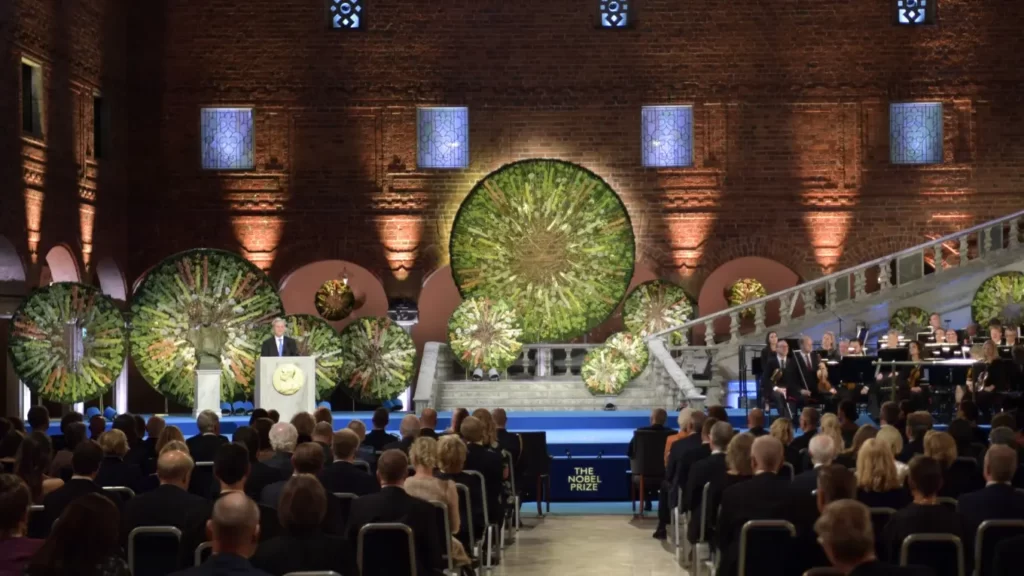Nobel Foundation Reverses Decision to Invite Russian Ambassador
The Nobel Foundation, responsible for the prestigious Nobel Prize awards, recently found itself in the midst of controversy when it reversed its decision to invite the Russian Ambassador to the Nobel Prize ceremonies. This unexpected turn of events has significant implications not only in the field of international diplomacy but also for students preparing for various government exams, including those aspiring to become teachers, police officers, banking professionals, railway employees, and civil servants from PSCS to IAS.

Why this News is Important
The Decision Reversal: The Nobel Foundation’s decision to retract its invitation to the Russian Ambassador underscores the growing tensions in international relations. It highlights the role of organizations like the Nobel Prize in promoting global cooperation and peace.
Impact on Diplomatic Relations: This incident could strain diplomatic relations between Russia and Sweden, where the Nobel Prize ceremonies take place. Such diplomatic tensions have wide-reaching consequences in the current global political climate.
Historical Context
To understand the significance of the Nobel Foundation’s decision reversal, we must consider the historical context. The Nobel Prize was established by the will of Alfred Nobel, a Swedish inventor, engineer, and philanthropist, in 1895. It has since been awarded annually in various categories, including Peace. Over the years, the Nobel Peace Prize has been awarded to individuals and organizations that have made significant contributions to world peace and diplomacy.
Russia has a notable history with the Nobel Peace Prize, having received it several times for its role in international affairs. However, recent geopolitical developments, including Russia’s actions in Ukraine and its strained relations with Western countries, have cast a shadow on its international image.
Key Takeaways from the News
| Serial Number | Key Takeaway |
|---|---|
| 1 | The Nobel Foundation reversed its decision to invite the Russian Ambassador to the Nobel Prize ceremonies. |
| 2 | This incident highlights the delicate nature of international diplomacy and its impact on global events. |
| 3 | Diplomatic tensions between countries can have far-reaching consequences, affecting international relations and policies. |
| 4 | Students preparing for government exams should stay informed about current affairs, as such events can be relevant to their studies. |
| 5 | Understanding the historical context of global events is crucial for comprehending their significance and implications. |
Important FAQs for Students from this News
Q: What is the Nobel Foundation?
A: The Nobel Foundation is responsible for awarding the Nobel Prizes, including the Nobel Peace Prize, and it manages the financial assets left by Alfred Nobel.
Q: Why did the Nobel Foundation reverse its decision to invite the Russian Ambassador?
A: The Nobel Foundation cited growing international tensions as the reason for reversing the invitation, which has wider implications for diplomatic relations.
Q: How can this news be relevant to government exams?
A: Understanding the dynamics of international diplomacy and its impact on global events is crucial for aspirants of government exams.
Q: What is the historical significance of the Nobel Peace Prize?
A: The Nobel Peace Prize has been awarded to individuals and organizations making notable contributions to world peace and diplomacy since its inception in 1895.
Q: How can students stay updated with current affairs for their exam preparation?
A: Students can follow reputable news sources, engage in current affairs discussions, and use study materials that cover recent events to stay informed.
Some Important Current Affairs Links


